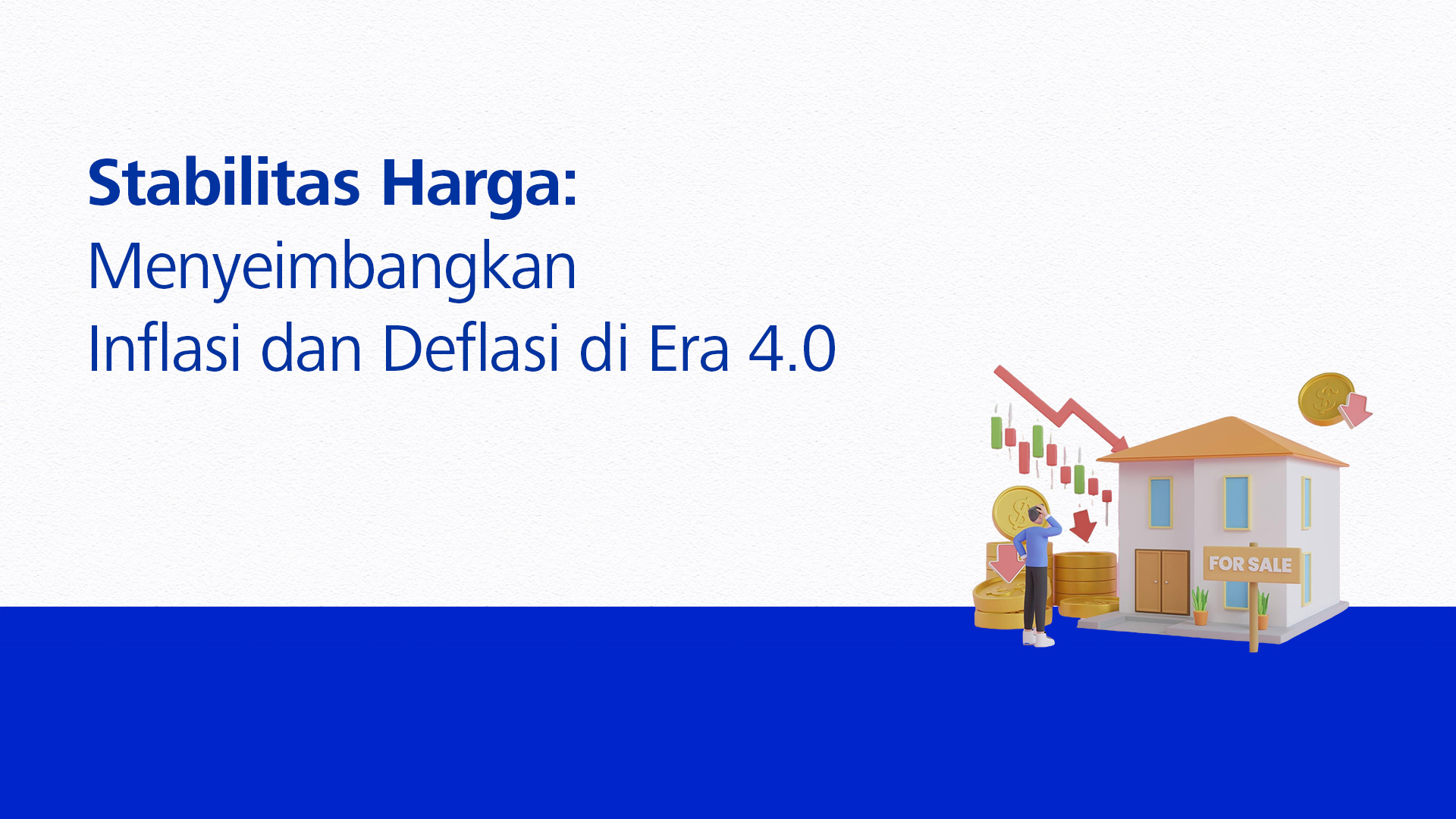Economic Stability: Balancing Inflation and Deflation in the 4.0 Era

In recent weeks, various discussions regarding the economy, especially related to inflation and deflation, have sparked new trends such as Loud Budgeting, Doom Spending, and the Latte Effect. These terms reflect the ongoing economic turbulence in Indonesia, which has particularly affected Generation Z.
The rise in the prices of both primary and secondary necessities has led to a decrease in purchasing power. According to data released by the Central Bureau of Statistics (BPS), Indonesia has experienced fluctuating deflation over the past five months, with a decline in the prices of goods and services from 0.03% in May to 0.12% in September.
Deflation caused by inflation does not always bring positive effects. The increase in the prices of various necessities in recent months has had a direct impact on people’s purchasing power. Domestic inflation is driven by various factors, both political and social, and is also influenced by the uncertainty of global economic conditions.
The ongoing price increases in the market can make consumers more cautious in their spending, which in turn reduces merchants’ revenues. As a result, this can slow down the economic cycle.
Several methods that can be used to mitigate inflation and deflation include:
-
Managing and Evaluating Assets: During deflation, the prices of goods and services need to be adjusted to reflect decreased demand. Companies can use cost accounting approaches to determine optimal selling prices, considering both variable and fixed costs, and avoid large losses. These adjustments can stimulate the economic cycle by encouraging more purchases.
-
Minimizing Scalping Practices: Scalping refers to the practice where unscrupulous merchants monopolize product stocks to gain higher profits. A clear example occurred in 2020 when the mass scalping of PlayStation 5 products caused inflation through the prices modified by scalpers. Limiting product distribution in the market and restricting purchase quotas can help control this practice.
-
Evaluating Tax Implementation and Calculation: Taxation significantly impacts economic fluctuations. Raising taxes during a recession can harm people’s purchasing power and affect product prices. High taxes stifle company productivity, leading to reduced product supply and forcing prices to rise due to scarcity.
-
Having a Financial Management Plan: Both domestic and foreign investors can inject significant capital into the economy, which increases liquidity and market stability. This helps maintain currency value and reduces the risk of inflation. Additionally, it allows the country to develop sectors supported by these investments, thereby maximizing economic growth and people’s purchasing power.
The Accounting Program at Universitas Dian Nusantara equips students with knowledge of optimal financial management. Graduates are not only taught to be mathematical experts but are also trained in the fundamentals of addition, subtraction, division, and multiplication with strong analytical and record-keeping skills. Graduates with a concentration in management accounting can pursue certification as a Certified Management Accountant (CMA).
(Sekar Ayu/ HUMAS UNDIRA)
Press Contact :
Biro Humas & Sekretariat Universitas Dian Nusantara
Facebook : www.facebook.com/undiraofficial
Instagram : www.instagram.com/undiraofficial
Twitter : www.twitter.com/undiraofficial
www.undira.ac.id
Other

UNDIRA Student Analyzes Cinematographic and Semiotic Perspectives in JKT48’s Music Video Production
Read more.jpg)
UNDIRA Receives KEMENDIKBUDRISTEK Grant for Partnership-Based UMKM Development Program for UMKM Development in Tangerang Regency.
Read more
The 1st Anniversary and Opening Ceremony for New Students of Universitas Dian Nusantara for the Odd Semester of the 2020/2021 Academic Year
Read more
Campus Tanjung Duren
Jln. Tanjung Duren Barat II No. 1
Grogol, Jakarta Barat. 11470
Campus Green Ville
JIn. Mangga XIV No. 3
Campus Cibubur
Jln. Rawa Dolar 65
Jatiranggon Kec. Jatisampurna, Bekasi. 17432







